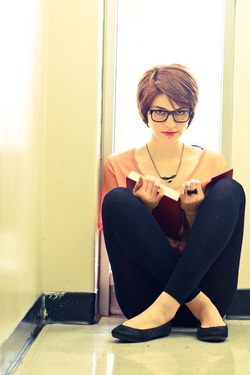Education Editor

David Hansen's article, “Revitalizing the Idea of Vocation in Teaching", with regards to vocation is one that many teachers find worthwhile because the way public obligation and personal fulfillment is discussed is how many initially felt during their first few years as educators.
Many teachers feel an essence to do more, but often do not express this in words. Vocation develops as a need to want to find creative solutions to education and social issues, often feeling a strong sense of determination. Though educators interviewed in the past wouldn't personally call their career as an educator a “vocation” because of the religious perceptions associated, some do consider their work a passionate obligation.
From one teacher's experience working with both tenure and new teachers, a strong sense of duty develops from teachers who have a connection with the local community.
Caitlin Vanderstein, an educator teaching in the Chicago Public Schools system, told Le Prestige of her perspective regarding teachers and the working with the local community. "A sense of community proves to be important, particularly a bond between students and educators,", stated Vanderstein. "Unlike other professions, teachers really do benefit from learning about their students' backgrounds and ways of learning, so that the best practitioners I've encountered in the past are really those that remain closest to the learners."
Another teacher, Ana Guadalupe Perez, who works in the northwest suburbs of Chicago, discussed her experience in the classroom. Perez, a history teacher, discussed an incident where learning about a student's background helped her become a better educator.
"I remember a specific incident where one of my students a year ago had the most difficult time attempting to grasp the difference between a noun and a pronoun," Perez mentioned. "She would stare at the front of the class with a blank look on her face, then write a few notes on her in-class assignment, and eventually turn in a sheet with drawings of what appeared to be a happy family. She not only did this during my time with her, she would also fail to focus on her other assignments with other teachers."
Perez stated that her student was a victim of sexual abuse and she'd recently started receiving counseling from the school psychologist. The memories were coming back to this young girl, bringing fresh reminders of a negative past. After she became aware of the situation, Perez immediately focused her efforts on building trust and a comfort zone with the student in order for her to begin engaging once again in the classroom.
"I was determined to make my classroom a safe zone for my students to learn. Because other teachers didn't bother learning about this student's history, some suggested that this particular student needed to be in special education. If we don't actively engage with our students and simply limit our interactions to class material, we create a distance between ourselves and our students that can have devastating effects for the learning process."
The distance and sense of interaction among students and teachers directly applies to the teaching experience and philosophy of many educators across the nation. Vanderstein, like Perez, mentioned that becoming a teacher was something she did in order to make a positive contribution to society.
"When I initially became an educator, my goals were to make a positive difference in the lives of students and encourage education as a key to success," Vanderstein commented. "I imagined myself working with all kinds of students and allowing them to obtain their personal best in the classroom while facilitating them to best shape their futures. I've been fortunate to have had many opportunities to do this, for which I am very thankful."
However, Vanderstein, a 7th grade biology teacher, admits that society doesn't always appreciate the work of educators. "Our culture doesn't always value our diligence and responsibility as educators, particularly with regards to status and prestige and 'moving up' within the educational career path. Everyone thinks we just babysit, when in reality there is so much work to be done."

 RSS Feed
RSS Feed

